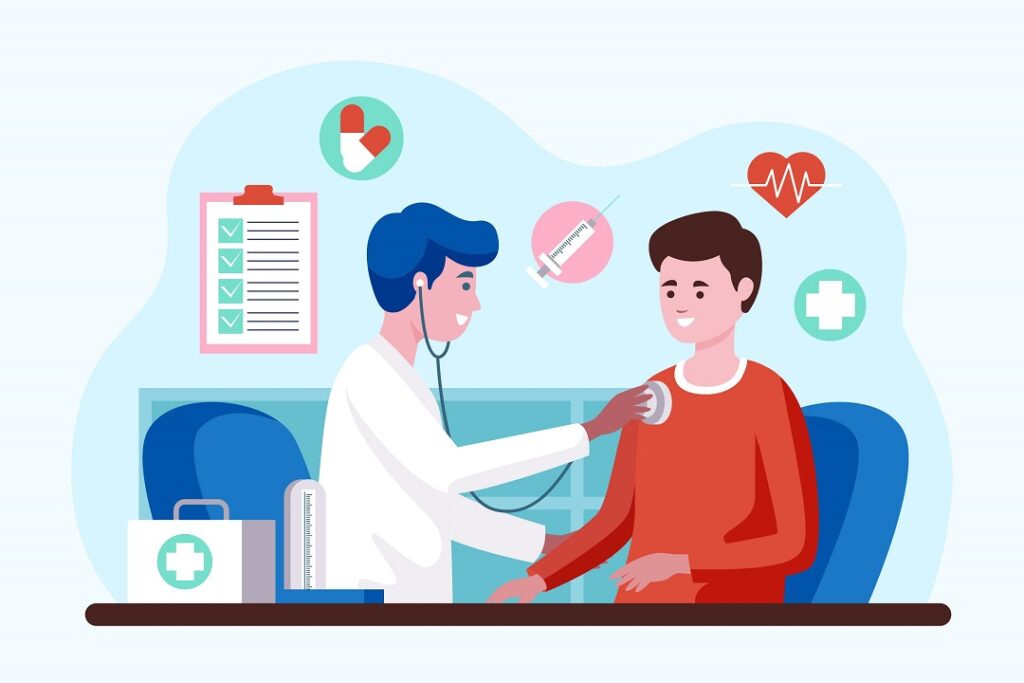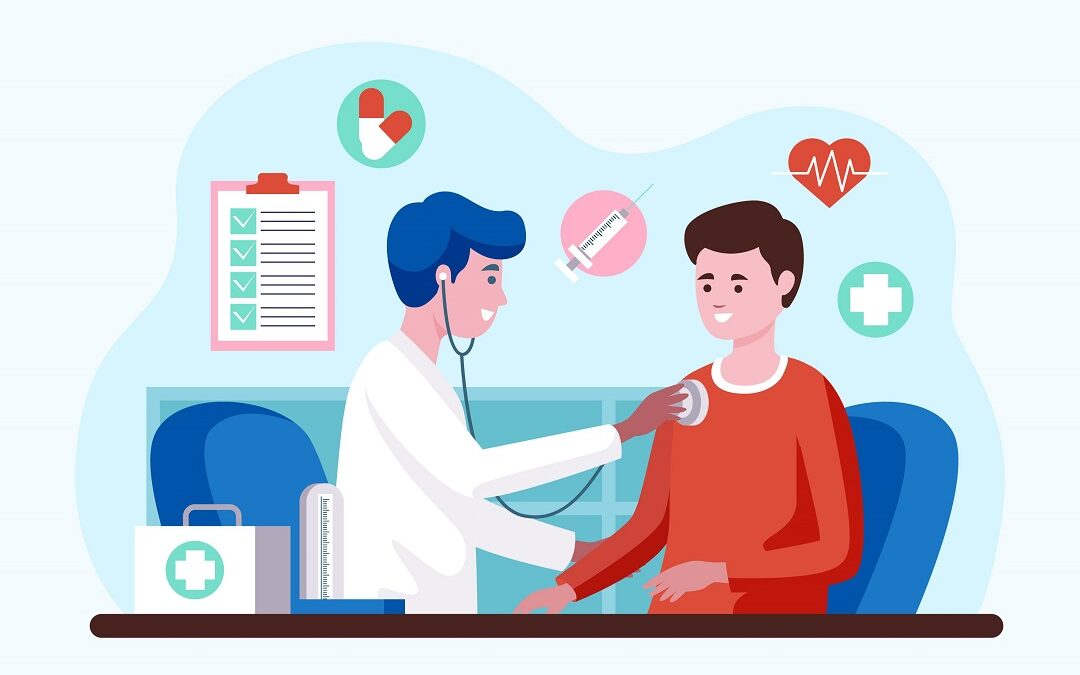
As we enter the new year 2025, health check-ups have gained more importance than before.
Medical advancements in the field have made diagnostics more precise and accessible which makes preventive care a viable option.
It is a smart choice and getting an early diagnosis can surely help you avoid several health issues.
In this blog, we will discuss a few important health checkups that can provide protection against future health problems and empower you to lead a healthier life.
Why Regular Health Checkups Are Important?
Let’s understand one thing, availing preventive care can save lives. By identifying health risks early on, you can avoid complications and benefit from timely interventions.
Here are some of the major advantages of some important health checkups:
- Early Detection of Diseases: Many illnesses, such as diabetes, hypertension, and cancer, show almost no clear symptoms in their early stages.
Regular screening can make sure that these are caught early, which can also improve the outcomes.
- Chronic Disease Management: A few health conditions, like arthritis or heart disease, require ongoing management.
Routine checkups can help adjust treatment plans and may also prevent exacerbations.
- Post-Pandemic Health Awareness: COVID-19 has made us rethink health and disease and has made preventive care a top priority worldwide.
With changing lifestyles and environmental factors, the demand for regular health assessments has definitely surged.
Taking charge of your health today can set the stage for a longer, more fulfilling life tomorrow.
7 Important Health Checkups for 2025
Here is the list of 7 important health checkups that everyone should take up for better health outcomes –
1. Comprehensive Physical Exam
What does it include?
- Measurement of vital signs like blood pressure, heart rate, and respiratory rate.
- Body Mass Index (BMI) to assess weight-related health risks.
- Physical assessment of skin, reflexes, and general well-being.
Why is it important?
- A physical exam helps achieve a holistic view of your current health. It can serve as a baseline for identifying changes over time and can help uncover hidden conditions like thyroid disorders, vitamin deficiencies, or early signs of chronic disease.
2. Blood Test Panel
What does it include?
- Complete Blood Count (CBC): CBC evaluates red and white blood cells, hemoglobin, and platelets; which can detect anemia, infections, or clotting issues.
- Cholesterol Panel: It measures LDL and HDL cholesterol, along with triglycerides, that can directly assess heart disease risk.
- Blood Glucose Tests: It screens for prediabetes or diabetes.
- Liver and Kidney Function Tests: It detects organ abnormalities and can detect signs of liver damage or impaired kidney filtration.
Why is it important?
- Blood tests reveal a lot of information about your body’s internal workings. Regular monitoring can help detect nutritional deficiencies, metabolic issues, and organ dysfunction before they become serious.
3. Cardiovascular Screening
What does it include?
- Electrocardiogram (ECG): ECG unveils heart rhythm that can detect arrhythmias or irregular heartbeats.
- Stress Tests: These monitor your heart’s performance under physical exertion and can identify serious conditions like coronary artery disease.
- Lipid Profiles: It shows a detailed analysis of your cholesterol levels that can also estimate the risk of heart ailments.
Why is it important?
- Heart diseases remain the leading cause of death worldwide. Routine screenings help detect and manage risks like high blood pressure, blockages, or abnormal heart rhythms before they cause heart attacks or strokes.
4. Sexual Health Checkup
What does it include?
- Sexual dysfunctions: Men should get tests done to assess erectile dysfunction, premature ejaculation, low libido, and prostate health.
Women should get checkups like pelvic exams and hormonal assessments that can tell a lot about their overall health.
- STI Screenings: These can detect common sexually transmitted infections like chlamydia, gonorrhea, syphilis, and HIV.
- HIV Testing: It is critical for early diagnosis and management of HIV/AIDS.
Why is it important?
Sexual health is often a neglected part of our health but it deeply impacts overall well-being. Regular checkups ensure:
- Early Detection of STIs: Many sexually transmitted infections are asymptomatic in the early stages but can lead to complications like infertility or systemic infections if left untreated.
- Improved Relationship Health: Addressing issues like ED or premature ejaculation (PE) can enhance intimacy and confidence.
- Empowerment Through Awareness: A sexual health checkup leads to open, judgment-free conversations about safe practices, contraception, and personal concerns.
A healthy sex life ensures a healthier and more fulfilling life. Your sexual health checkup is not just about disease prevention, but it is also about taking control of your body, understanding your needs, and breaking stigmas around reproductive and sexual well-being.
A qualified sexologist can help you overcome sexual difficulties with simple yet effective personalised solutions.
Do not let stigma or hesitation control you. Take charge of your sexual health and contact a sexologist if you are facing any difficulty in your intimate life.
5. Cancer Screenings
What does it include?
- Mammograms: These are done for early detection of breast cancer in women.
- Pap Smears and HPV Tests: These are done to identify cervical cancer risks.
- Colonoscopies: These tests screen for colorectal cancer and are mostly advised after age 45.
- PSA Tests: PSA levels measure prostate health in men and can identify early signs of prostate cancer.
- Skin Cancer Screenings: These tests identify suspicious moles or lesions that can lead to melanoma.
Why is it important?
- Cancer detected early is often curable. These screenings are customised to your age, gender, and family history and can provide a personalized approach to cancer prevention.
6. Vision and Eye Health Checkup
What does it include?
- Vision Tests: These tests help evaluate clarity, focus, and refractive errors.
- Glaucoma Tests: They measure eye pressure to detect this otherwise silent condition.
- Retina Exams: This can identify issues like macular degeneration or diabetic retinopathy.
Why is it important?
- With changing lifestyle choices and increased screen time, digital eye strain and vision issues are on the rise. Timely checkups can prevent conditions from worsening and help maintain eye health.
7. Mental Health Screening
What does it include?
- You can opt for standardized questionnaires and evaluations for anxiety, depression, PTSD, or other mood disorders.
- You can opt for counselling to discuss emotional well-being and stress management.
Why is it important?
- Mental health is equally important as physical health. Regular screenings can help with early interventions and can prevent long-term mental health challenges.
How to Schedule and Prepare for These Checkups in 2025?
Here is how you can go about these checkups to ensure optimal health –
Booking Appointments:
- You can begin by searching healthcare providers specializing in preventive care.
- Choosing clinics that offer comprehensive packages and telehealth is always a bonus point.
- Consult a sexual health expert to deal with yearly sexual checkups and lead a sexually fulfilling life.
Preparing for Tests:
- Make sure you follow instructions like fasting for blood tests or wearing loose clothing for physical exams.
- It is ideal to have a list of symptoms, health concerns, and questions for your doctor.
The Role of Technology and Personalized Medicine in 2025
Healthcare in 2025 will thrive on innovation and may bank on:
- AI and Machine Learning: It is already working its magic in enhancing diagnostic precision and reducing human errors.
- Wearable Devices: These can track real-time health data, that could aid in early detection of anomalies like irregular heartbeats or high blood sugar.
- Genetic Testing: It offers insights into your unique health risks and helps in customising the treatments.
Bottom Line
Health is wealth, and in 2025, regular checkups are definitely your best investment. By prioritizing these seven vital health assessments, you take charge of your future with early detection, effective treatment, and peace of mind.
Don’t wait, schedule your health checkup today and step confidently into a healthier tomorrow.
FAQs
Q – How often should I get these checkups?
A – Most checkups are recommended annually, but the frequency may vary based on your age, medical history, and risk factors.
It is ideal to consult a healthcare provider who can customise the tests as per your requirements.
Q – What if I have no symptoms? Should I still go for these checkups?
A – Yes, in fact, that is the whole point. Many serious conditions, such as high blood pressure, diabetes, or certain cancers, can remain asymptomatic in their early stages.
Regular screenings ensure early detection, which works in favor of getting effective treatment and better outcomes.
Q – Are these tests safe?
A – Yes, all the recommended tests are passed for safety and accuracy. Most of the diagnostic tests are minimally invasive. It is ideal to get in touch with a healthcare provider who can help you curate a list of recommended tests.
Q – Can telehealth options replace in-person checkups?
A – Telehealth is an excellent tool for consultations, follow-ups, or discussing symptoms. You can opt for sample collections from home for some and may need to visit the clinic for others. A hybrid approach is often the most effective for comprehensive care.
Q – What happens if a problem is detected during one of these checkups?
A – If an issue is identified, your doctor will guide you through the next steps, which may include further diagnostic tests and customised treatment plans. The goal is to address concerns early before they progress into more serious conditions.
Q – Are sexual health checkups necessary if I am in a monogamous relationship?
A – Yes, sexual health checkups are essential regardless of your relationship status. They help identify potential issues like infections or hormonal imbalances that could affect overall health, even if symptoms are absent.
Having difficulties in any part of your intimate life can affect your relationship, be it erectile dysfunction or premature ejaculation. Sexual health remains a vital aspect of well-being for everyone.

